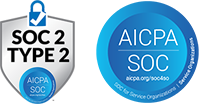What Is Confidentiality Agreement?
A Confidentiality Agreement is a legal contract between two or more parties that outlines information classified as confidential and prohibits unauthorized disclosure. Also known as a non-disclosure agreement (NDA), it defines the scope of protected data—such as trade secrets, financial records, or client lists—and sets the duration, permitted uses, and remedies for breach.
Why Confidentiality Agreement Matters
Protecting sensitive information preserves competitive advantage, client trust, and regulatory compliance. Without clear confidentiality terms, organizations risk data leaks, intellectual-property theft, and financial loss. Well-drafted agreements also clarify each party’s responsibilities, reducing ambiguity and litigation exposure.
Where Confidentiality Agreement Is Used
- Employment Contracts: Safeguards proprietary processes, client databases, and strategic plans when onboarding staff.
- Vendor & Supplier Deals: Ensures third parties handling corporate data—such as consultants or technology providers—maintain secrecy.
- Mergers & Acquisitions: Governs due-diligence exchanges to protect valuation analyses and contract terms.
- Partnerships & Joint Ventures: Defines boundaries for shared innovation projects and co-development efforts.
- Research & Development: Secures pre-publication findings and patent-pending inventions.
Confidentiality Agreement Key Benefits
- Data Protection: Limits exposure of trade secrets, customer information, and product roadmaps.
- Legal Clarity: Establishes enforceable obligations, making breaches easier to prosecute.
- Trust Building: Reassures clients, investors, and partners that sensitive information is handled responsibly.
- Compliance Assurance: Meets regulatory requirements (e.g., HIPAA, GDPR) for handling personal or health data.
- Competitive Edge: Encourages open collaboration within defined boundaries without risking leaks.
Best Practices & Examples
- Define Confidential Data: List specific categories—financials, source code, marketing strategies—rather than broad “all information.”
- Set Clear Timeframes: Specify how long confidentiality obligations last, often 2–5 years post-termination.
- Include Permitted Exceptions: Carve out disclosures legally required (e.g., by court order) or already public.
- Tailor to Context: Use mutual NDAs for two-way exchanges; one-way (unilateral) NDAs when only one party discloses.
- Specify Remedies: Detail injunctive relief, liquidated damages, and dispute-resolution procedures to deter breaches.
Conclusion
A robust Confidentiality Agreement is foundational to safeguarding an organization’s most valuable information assets. By defining exact data types, duration, exceptions, and remedies, these agreements deliver legal certainty, foster trust, and enable secure collaboration—protecting both innovation and reputation.
Confidentiality Agreement FAQs
Q: What is in a confidentiality agreement?
A Confidentiality Agreement typically includes definitions of confidential information, the parties involved, permitted uses, duration of the obligation, exclusions (such as public domain or court-ordered disclosure), and remedies for breach.
Q: What is an example of a confidentiality contract?
An example is a one-way NDA where a startup founder shares business plans with a potential investor, obligating the investor to keep all shared documents and discussions strictly confidential for a defined term.
Q: What’s the difference between CDA and NDA?
“CDA” (Confidential Disclosure Agreement) and “NDA” (Non-Disclosure Agreement) are often used interchangeably. A CDA may emphasize the disclosure process, while an NDA focuses on non-disclosure—both aim to protect sensitive information.
Q: What is an example of a confidentiality statement?
A confidentiality statement in an employment handbook might read:
“Employees must not share any non-public customer data, financial reports, or proprietary methodologies with external parties, both during and after employment, unless authorized in writing.”




